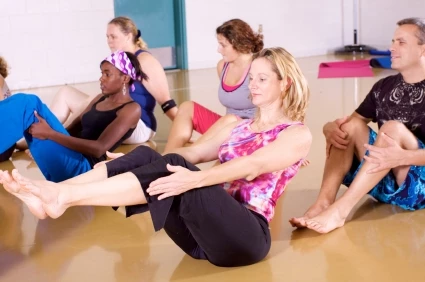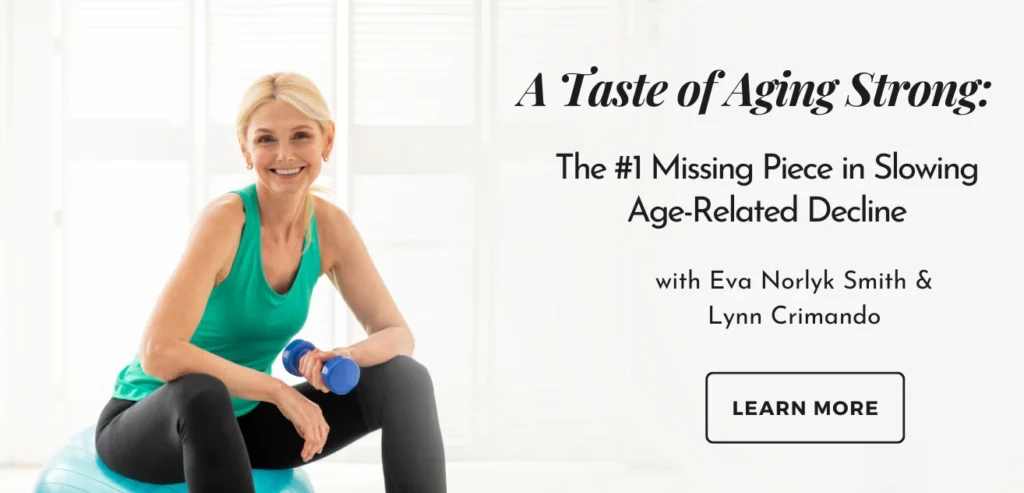Designer Donates Close to a Million to Yoga for Cancer Patients

If designer Donna Karan had her way, this is exactly how cancer treatment wards of the future will look. Mainstream medicine may take a while to catch up to such innovative ideas, but Ms. Karan has already paved the way: The New York Times reports that the founder of the popular DKNY clothing line has donated $850,000 for a year-long experiment using yoga for cancer at the Beth Israel Medical Center.
Ms. Karan’s motivation for this project is highly personal: she had to witness both her husband and a dear friend endure the pain of traditional cancer treatments. Ms. Karan recalls her husband’s discomfort. “Everybody was dealing with his disease,” she explained in an article in The New York Times. “Nobody was looking at him holistically as a patient. How do you treat the patient at the mind-body level? Not only the patient, but the loved one?”
Despite expensive, state-of-the art medical treatments, Ms. Karan’s husband could not breathe until a yoga teacher helped him “open his lungs.” “He went from ah-ah-ah,” Karan said, mimicking his distressed gasps, “to aaaaahh.”
Urban Zen: Integrating Yoga into Cancer Treatments
In 2006, Ms. Karan created a charitable foundation, Urban Zen, with the goal of creating awareness of the value of a more integrative form of medicine, which balances both the science of the West with the healing powers of ancient Eastern disciplines. “To think that I had an idea and didn’t do everything I could to make a difference, I couldn’t get up every morning,” Ms. Karan says at the Urban Zen website. “It’s just who I am.”
Ms. Karan hopes to bring holistic relief to cancer patients right from the start, so they don’t have to suffer the way those dear to her did. The Urban Zen foundation aims to help integrate yoga, meditation, aromatherapy, feng shui, and other forms of holistic healing with Beth-Israel’s traditional cancer treatments.
Ms. Karan’s yoga therapy masters are Rodney Yee and his wife Coleen Saidman Yee, who are in charge of overseeing experiments on the relief effects of yoga therapy. They, along with fifteen other yoga teachers, will be teaching a specially formulated regime of yoga for cancer patients, designed to reduce pain, nausea, anxiety, and other side-effects of traditional cancer treatment programs. Yee and Saidman Yee will also be training nurses in relaxation techniques so that they can help their patients.
The project to combine yoga and cancer treatments has been integrated with the medical protocol of Beth Israel, and includes a research component to track the effectiveness of yoga for cancer patients. Ms. Karan aims to establish the efficacy of yoga therapy and other holistic therapies in improving patient comfort and also in reducing hospital stays and costs. Her hope is that the evidence documented during this time will set a precedent for other hospitals to follow.
According to The New York Times, Dr. David Shulkin, the chief executive of Beth Israel, feels that this new yoga for cancer program is right in line with the interests of the patients. Shulkin noted that a third of Americans seek alternative treatments. “While we are giving patients traditional medicine, we are not going to exclude patients’ values and beliefs,” he said. “To make care accessible to these third of Americans, we’re trying to embrace care that makes them more comfortable.”
This is not the first time Beth Israel has implemented progressive approaches to health; for the past eight years, the hospital has worked to combine conventional methods with alternative ones. In fact, just a few months ago, integrative medicine at Beth Israel was elevated to department status, right up there with pediatrics and surgery.
The trend is catching on in other areas of the U.S. as well: in San Francisco, Dr. Dean Ornish has established a number of holistic programs, including the Prostate Cancer Lifestyle Trial and the Breast Cancer Personal Support and Lifestyle Integration Program, which provide patients with access to yoga therapy for cancer, yoga breathing for cancer, and meditation techniques.
On top of this, Cancer-help retreats, where yoga teachers work individually with patients to develop a highly personalized yoga therapy programs, offer intensive support.
As understanding of complimentary, holistic programs rises, the hope is that cancer sufferers have more options to turn to when seeking relief from traditional treatment discomforts.



